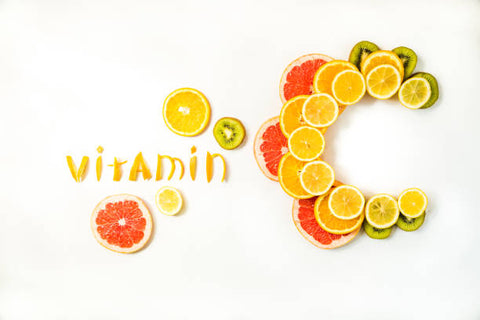Vitamin C, also known as ascorbic acid, is a water-soluble vitamin that plays a crucial role in various bodily functions. One of its most well-known benefits is its support for the immune system. In this article, we'll delve into the world of vitamin C, exploring its functions, sources, benefits, and more.
Functions of Vitamin C:
Vitamin C boasts a wide range of functions in the body, including:
- Immune Support: Vitamin C is essential for the production and function of white blood cells, which help fight off infections.
- Antioxidant Properties: It's a powerful antioxidant that helps protect cells from damage by free radicals.
- Collagen Production: Vitamin C is necessary for collagen synthesis, a protein important for skin, tendons, ligaments, and blood vessels.
- Wound Healing: It aids in the body's natural wound-healing processes.
- Absorption of Iron: Vitamin C enhances the absorption of non-heme iron from plant-based foods.
Sources of Vitamin C:
You can find vitamin C in a variety of foods, including:
- Citrus Fruits: Oranges, grapefruits, lemons, and limes.
- Berries: Strawberries, blueberries, raspberries, and cranberries.
- Tropical Fruits: Pineapples, mangos, and papayas.
- Kiwi: A small kiwi fruit contains more vitamin C than an orange.
- Bell Peppers: Particularly red, green, and yellow peppers.
- Leafy Greens: Spinach and kale are good sources.
- Broccoli and Cauliflower: Cruciferous vegetables are rich in vitamin C.
Benefits of Vitamin C:
- Boosts Immunity: Vitamin C helps the body fight off infections and reduces the duration and severity of the common cold.
- Skin Health: It supports collagen production, which keeps the skin healthy, firm, and youthful.
- Antioxidant Protection: Vitamin C fights oxidative stress and helps protect the body against chronic diseases.
- Wound Healing: It promotes efficient healing of wounds, cuts, and injuries.
- Iron Absorption: Enhances the absorption of non-heme iron from plant-based foods.
Vitamin C Deficiency:
A deficiency in vitamin C can lead to scurvy, a condition characterized by fatigue, muscle weakness, joint and muscle aches, and swollen, bleeding gums. Scurvy is rare today but can still occur in individuals with severely inadequate vitamin C intake.
Supplements and Dosage:
While vitamin C supplements are available, it's generally best to obtain your daily intake from a balanced diet rich in fruits and vegetables. The recommended daily allowance (RDA) for vitamin C varies depending on age, sex, and life stage. For most adults, it's about 65-90 milligrams per day.
Conclusion:
Vitamin C is an essential nutrient for maintaining overall health. Its numerous benefits, including immune support, antioxidant protection, and skin health, make it a vital part of a balanced diet. To ensure you get enough vitamin C, include a variety of fruits and vegetables in your daily meals, and consult with a healthcare professional for personalized guidance on your nutritional needs.
Author: Nikita Vishnoi BCA












